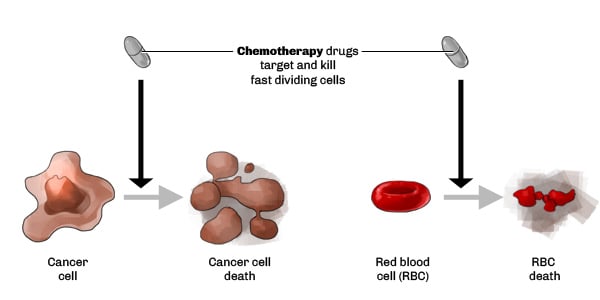Introduction:
Cancer is a complex and heterogeneous disease that poses a significant challenge to medical researchers and clinicians. Despite significant progress in the understanding of cancer biology and the development of new treatments, cancer remains one of the leading causes of death worldwide, with millions of people diagnosed with the disease each year. Biotechnology has emerged as a powerful tool in the fight against cancer, with a range of innovative therapies and diagnostic tools being developed that have the potential to revolutionize cancer treatment.
Biotechnology in Cancer Diagnosis:
One of the key areas where biotechnology is making an impact in cancer treatment is in the development of new diagnostic tools. These tools use cutting-edge technologies such as genomics, proteomics, and imaging to identify cancer at an early stage and to monitor the disease progression. For example, liquid biopsy, which involves the analysis of circulating tumor DNA in the blood, has the potential to detect cancer early and to monitor treatment response in real-time. Similarly, imaging technologies such as positron emission tomography (PET) and magnetic resonance imaging (MRI) are being used to improve the accuracy of cancer diagnosis and to guide treatment decisions.
Biotechnology in Cancer Treatment:
Biotechnology is also playing an increasingly important role in cancer treatment, with a range of innovative therapies being developed that target cancer cells specifically and minimize damage to healthy tissue. One of the most promising areas of research is precision medicine, which involves the use of genomic and other data to tailor cancer treatment to the specific genetic profile of the patient and the tumor. This approach has led to the development of targeted therapies such as tyrosine kinase inhibitors, which block the action of specific proteins involved in cancer growth and metastasis.
Another promising area of research is immunotherapy, which harnesses the power of the patient’s immune system to fight cancer. Immunotherapy includes treatments such as checkpoint inhibitors, which block the mechanisms that cancer cells use to evade the immune system, and CAR-T cell therapy, which involves the modification of the patient’s own immune cells to recognize and attack cancer cells.
Ethical and Legal Implications:
While the development of new biotechnology-based cancer treatments holds great promise, it also raises ethical and legal questions. For example, the high cost of some of these treatments has led to concerns about access and affordability, particularly in low-income countries. There are also concerns about the ethical implications of genetic testing and the potential misuse of genomic data.
Conclusion:
Biotechnology has emerged as a powerful tool in the fight against cancer, with a range of innovative therapies and diagnostic tools being developed that have the potential to revolutionize cancer treatment. However, the ethical and legal implications of these new technologies must be carefully considered, and efforts must be made to ensure that all patients have access to the benefits of these new treatments. With continued research and development, it is hoped that biotechnology will play an increasingly important role in the fight against cancer and help to reduce the global burden of this devastating disease.



